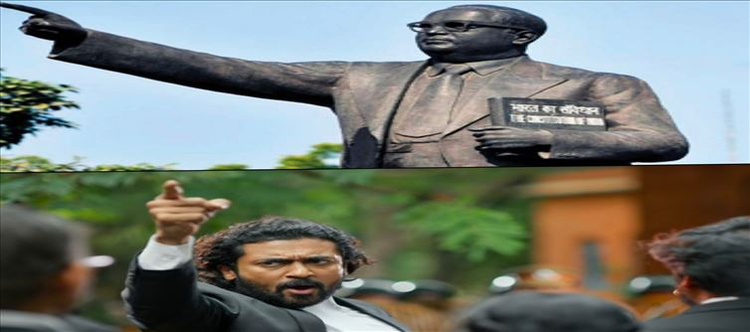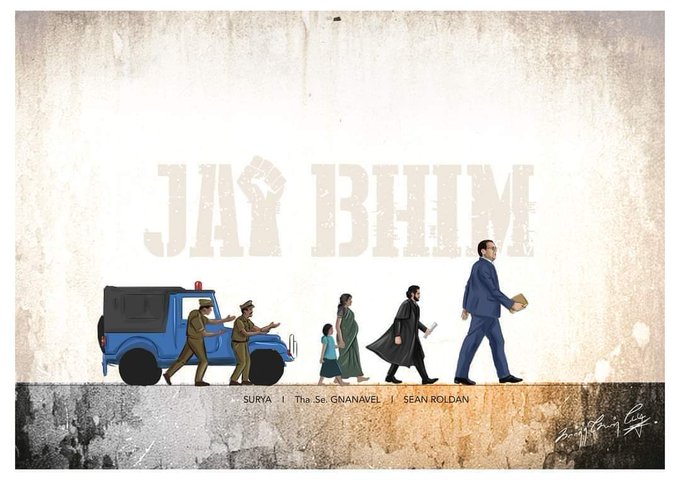
Looking for Ambedkar in 'Jai Bhim': jai Bheem film as an important portrayal of institutionalized discrimination and the search for justice and power of marginalized groups.
Films based on the real-life struggles of marginalized people are rarely seen in major indian cinema.
DJ Gnanaveli's Jay Beam is one of them, the film honestly reveals issues related to identity and institutionalized discrimination.

Based on the true story of the struggle of a dark woman named Parvathi (Chengani in the film) who wants to get justice for her husband who was arrested in a false theft case and tortured in police custody and later disappeared from police custody.
The film depicts the life, occupation and culture of the Dark Tribes, their search for a better life and education and their daily lives, torture and mass imprisonment. All these are embedded in the deep hierarchy and liberal democratic framework of tamil Nadu.
Justice Chandru has been outspoken about his communist leanings in real life, which is well illustrated in the film Gnanavell.

Red flags with hammers and sickles, banners and posters with images and statues of Karl Marx can be seen in the background of various scenes.
The jai Beam film illustrates the patriarchal nature of the indian state and how its loose structures help to infiltrate and institutionalize discrimination against the Scheduled Castes, Tribes and Muslims, the oppressed classes.
Although the reality is embedded in the film, there are some questions. Does surya look like Justice Chandru? tamil movies can certainly do even better by valuing dark skin and reality cinemas.
Another concern is the portrayal of left-wing politics. Hugo Goring, a tamil sociologist and scholar, argues that politics is a game of pragmatism and that left-wing movements are forced to adhere to pragmatic politics.
It was this pragmatism that forced the Left to focus on the issues of caste and social exclusion in tamil Nadu.

Why was the title jai Beam when the film did not portray Ambedkar as a guiding light or inspiration, except on one occasion when Chandru mentions that Ambedkar was sidelined by gandhi and Nehru?
Ambedkar's identity presence may be needed for the current pressures of politics and the resulting pragmatism, with a view to making Ambedkar available to all.
In a legal drama towards legal action and social justice, Ambedkar could be more inspiring than Marx because he believed that the process of adjusting civil society needed small and continuous revolutions in society and institutional mechanisms for justice.
We should know that the Dark Ones are still waiting for considerable power and that their Ambedkar has not yet captured that moment. We need many movies like Jay Beam in our struggle for a better world.




 click and follow Indiaherald WhatsApp channel
click and follow Indiaherald WhatsApp channel